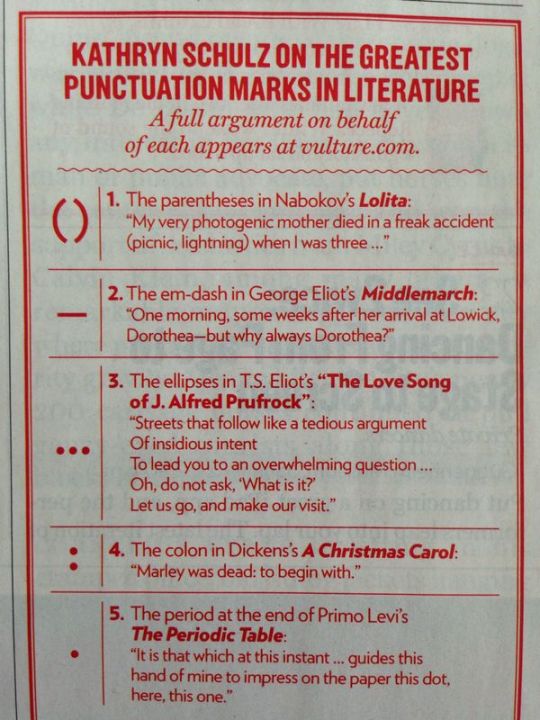Text
Caves are weirder and more varied than you think







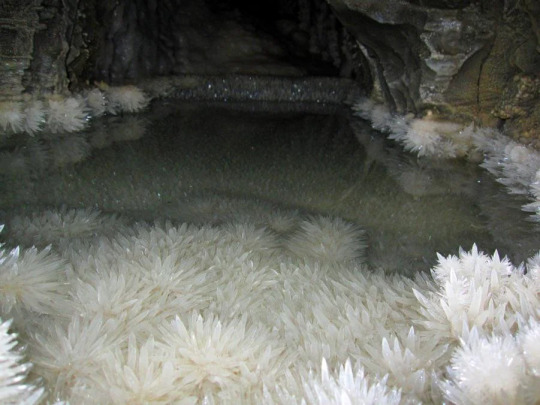

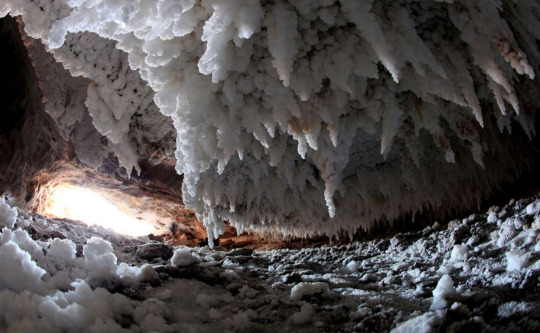
171K notes
·
View notes
Text
useful/fun character development questions for couples
there are a lot of “otp questions” lists out there but I just wanted to make a list that was specifically helpful for writers, especially for working out the technical stuff of conveying Romantic Love. so, here ya go, stuff to answer for each character
What, specifically, was the catalyst for their physical attraction (if applicable) to the other character? In other words, what in particular had them like “Oh, they’re...hot...”
Does this change over time? What things do they find “hot” about their partner after they’ve been together for some time, and have had more time to, well, notice and appreciate?
By contrast, what was the moment that first made their ~heart~ Soft for the other person? Not necessarily a conscious realization of “I love this person,” but a moment that had them like “Oh...I adore them...”
Does this change over time? What will always reliably make them melt with how much they adore the other character?
How do they consciously realize that they like the other character? Does it take them a while?
How do they react to the realization that they like the other character? Is it an “oh my god I’m never going to think about this again” thing, or are they pretty comfortable with it?
Do they (or would they) pursue the other character’s affection, and if so, how? Do they tell the other character how they feel? Try to earn their admiration? Woo them with romantic gestures? Flirt with them, skillfully or otherwise?
What do they think about romantic love? Do they have baggage surrounding it? Do they idealize it? Is it an object of longing and wanting, or were they really not thinking about it until they started falling for the other character? What are their expectations like?
What do they think about commitment? Is a long-term partnership the goal? Are they thinking about building a life with their partner, or are they focused on the present?
What scares them about entering a relationship?
What fears, past traumas, etc. would be hardest for them to talk about with their partner?
How much independence do they prefer in a relationship—do they want to share their lives as much as possible with their partner, or do they prefer to mostly do their own thing and let their partner do their own thing?
What is their go-to for making a partner feel loved?
What makes them feel loved? Would they build up the courage to ask for it?
What, for them, constitutes a level of intimacy that they would only rarely share with someone? This can be physical, emotional, etc.
If they had the ability to just spend free time with their partner, what would they do? Would they go out or stay inside?
Under what circumstances would they want to be left alone by their partner?
They’re going through something incredibly difficult—perhaps they’re very sick, have lost a loved one, or have gone through a traumatic event. Do they ask for or accept support and care from their partner, or try to isolate themselves?
Are they okay with public displays of affection? Do they like them?
When would they say “I love you?” Do they say it first? Do they say it often, or is it reserved for special moments?
If sex is something that would be part of a relationship for them, do both or either of them have prior experiences? If not, how do they feel about it?
What does sex mean for them? Socially, religiously, what attitudes are they bringing with them? Is “virginity” something they care about? Do they want sexual experiences to occur within a certain “level” of relationship, or does that not really matter so much to them?
How comfortable are they talking about, and openly communicating during, sex?
What would their partner do that would really turn them on, perhaps unintentionally?
They accidentally hurt or upset their partner. What happened? How do they respond? What do they do to make their partner feel better?
They have an argument with their partner—what is it about? Do things stay respectful, or is there some shouting and accusing going on?
They have to apologize to their partner. Is this difficult for them? How do they approach it?
How do they feel about the prospect of parenthood? Do they plan on it? How would they react if they suddenly found out they were going to be a parent?
What compromises are they making in their relationship?
What completely petty topic (music taste, favorite food) do they find themselves completely at odds with their partner about?
What little thing do they find incredibly (though harmlessly) annoying about their partner?
How do their friends react to finding out they’re a couple? Do they have lots of mutual friends? Did their friends know, perhaps before they themselves did?
Under what circumstances would they feel jealous?
Under what circumstances would they feel protective?
Would they get a pet? What kind? Who brings up the idea, and who takes a little longer to convince?
6K notes
·
View notes
Text
Interacting with published authors gives you absolutely no comfort when you ask questions about publishing.
They’ll be like yeah the process of finding an agent and getting your book published and dealing with publishers is like being forced to chew your own arm off slowly over the course of several weeks while getting skinned alive by a toddler with a butter knife. You should still try to do it though.
559 notes
·
View notes
Text
So... I found this and now it keeps coming to mind. You hear about "life-changing writing advice" all the time and usually its really not—but honestly this is it man.
I'm going to try it.

102K notes
·
View notes
Text
Symbolism Associated With Flowers For Writers
Acacia: Since ancient times, acacia has been associated with purity and innocence. It is also a symbol of resurrection and new beginnings.
Amaryllis: Amaryllis is a symbol of passion and desire. It is also associated with strength and courage.
Anemone: Anemone is a symbol of grief and sorrow. It is also associated with hope and new beginnings.
Azalea: Azalea is a symbol of love, passion, and desire. It is also associated with beauty and elegance.
Carnation: Carnation is a symbol of love, affection, and appreciation. It is also associated with motherhood and childbirth.
Chrysanthemum: Chrysanthemum is a symbol of longevity, happiness, and good luck. It is also associated with death and mourning.
Daisy: Daisy is a symbol of innocence, purity, and simplicity. It is also associated with childhood and new beginnings.
Delphinium: Delphinium is a symbol of wisdom, knowledge, and understanding. It is also associated with royalty and nobility
Frangipani: Frangipani is a symbol of love, passion, and desire. It is also associated with beauty and elegance.
Gardenia: Gardenia is a symbol of purity, innocence, and grace. It is also associated with love and admiration.
Gerbera Daisy: Gerbera daisy is a symbol of new beginnings, happiness, and joy. It is also associated with optimism and hope.
Hyacinth: Hyacinth is a symbol of love, passion, and desire. It is also associated with grief and sorrow.
Iris: Iris is a symbol of faith, hope, and wisdom. It is also associated with royalty and nobility.
Lily: Lily is a symbol of purity, innocence, and chastity. It is also associated with resurrection and new beginnings.
Lily of the Valley: Lily of the valley is a symbol of purity, innocence, and sweetness. It is also associated with new beginnings and springtime.
Magnolia: Magnolia is a symbol of love, beauty, and elegance. It is also associated with femininity and motherhood.
Orchid: Orchid is a symbol of love, passion, and desire. It is also associated with beauty, rarity, and luxury.
Rose: Rose is the most popular flower in the world and has a wide range of symbolism. It can symbolize love, passion, desire, beauty, romance, friendship, gratitude, and respect.
Tulip: Tulip is a symbol of love, passion, and desire. It is also associated with springtime and new beginnings.
Why Symbolism With Flowers Is Important For Writers
Flowers can be used to foreshadow events or themes in a story. For example, a writer might use a white rose to foreshadow a character's death, or a red rose to foreshadow a romantic encounter.
Flowers can be used to represent characters' emotions or motivations. For example, a character who is feeling sad might be described as holding a wilted flower, or a character who is feeling passionate might be described as surrounded by roses.
Flowers can be used to create symbolism that is specific to a particular culture or region. For example, in some cultures, the lotus flower is a symbol of purity and enlightenment, while in other cultures, it is a symbol of death and rebirth.
3K notes
·
View notes
Photo

This is money cat. He only appears every 1,383,986,917,198,001 posts. If you repost this in 30 seconds he will bring u good wealth and fortune.
631K notes
·
View notes
Text
so I got into grad school today with my shitty 2.8 gpa and the moral of the story is reblog those good luck posts for the love of god
1M notes
·
View notes
Text
Did I daydream this, or was there a website for writers with like. A ridiculous quantity of descriptive aid. Like I remember clicking on " inside a cinema " or something like that. Then, BAM. Here's a list of smell and sounds. I can't remember it for the life of me, but if someone else can, help a bitch out <3
115K notes
·
View notes
Note
Hey, Joy! What’s your biggest tip for marketing?
I'd say, "try to be consistent," but, um, I'm not sure I do so well at that myself.
What are we marketing? I am assuming it is books?
495 notes
·
View notes
Text
Quick editing tip: Passing time
Hey all, here’s a quick tip about showing the passage of short amounts of time in a scene. I see a lot of beats like this:
She hesitated
He paused
A few seconds later
There was a long silence
He waited for her to answer
She didn’t respond
Instead of telling us there’s a brief moment of silence or pause in your scene, try showing us by creating the feeling that time has passed through action, description, or inner monologue. Here are a few examples.
Before:
“Are you coming or not?”
He waited for her to answer, but she didn’t respond.
“Clare? Did you hear me?”
“Huh?”
After:
“Are you coming or not?”
Clare scrolled through her phone, her face illuminating with a eerie blue glow.
“Clare? Did you hear me?”
“Huh?”
Before:
Jared lingered at the suspect’s front gate. If this guy didn’t answer Jared’s questions, he was screwed.
“Hey you!” a voice shouted. “Get off my property!”
Jared hesitated. Finally, he turned to face the man. “I’m afraid I can’t do that.”
After:
Jared lingered at the suspect’s front gate. If this guy didn’t answer Jared’s questions, he was screwed.
“Hey you!” a voice shouted. “Get off my property!”
Jared patted his holster. He had a gun, but he certainly didn’t want to use it. Taking a deep breath, he turned to face the man. “I’m afraid I can’t do that.”
Not only does creating a pause instead of describing a pause allow your reader to feel the moment more vividly, it gives you a chance to explain what exactly that pause is about. People hesitate, pause, don’t respond, etc. for all kinds of reasons. Give us as much insight as you can into your weird quiet moment.
Of course, you don’t need to do this every single time. Sometimes it’s fine to say “he paused” or “the room was quiet for a moment”—it could be the best choice for that scene. But look back through your draft and see if you’ve used those “telling” descriptions more often than you needed to. If so, try to create the feeling of a pause—perhaps one that gives the reader a bit more information—using these techniques.
Hope this helps!
14K notes
·
View notes
Text
Masterpost: How to write a story?
Compilation of writing advice for some aspects of the writing process.
How to motivate myself to write more
How to get rid of writer’s block
Basic Overview: How to write a story
How to outline a story
How to come up with plot
How to create a character
How to make a character unique
How to use nicknames
How to start a story
How to write a prologue
How to write conversation
How to write witty banter
How to write the last line
How to write a summary
How to write a book description
How to write romance
How to write friendships
How to write emotional scenes
How to write an argument
How to write yelling
How to write anger
How to write betrayal
How to title fanfiction
How to write an unreliable narrator
First Person vs. Third Person POV
How to write character deaths
How to use songs in a fanfiction
How to name fictional things
How to write multiple points of view
Introducing a group of characters
Large cast of characters interacting in one scene
Redemption arc
Plot twists
Fatal Character Flaws
Good traits gone bad
More specific scenarios
Slow burn
AU ideas
Favourite tropes
How to create quick chemistry
How to write a bilingual character
How to write a character with glasses
How to create a villain
How to write a polyamorous relationship
How to write a wedding
How to write found family
How to write forbidden love
How to write a road trip
How to create and write a cult
How to write amnesia
How to write a stratocracy
How to write the mafia
Criminal past comes to light
Reasons for breaking up while still loving each other
Relationship Problems
Relationship Changes
Milestones in a relationship
Platonic activities for friends
Settings for conversations
Introducing partner(s) to family
Honeymoon
Date gone wrong
Love Language - Showing, not telling
Love Language - Showing you care
Affections without touching
Giving the reader butterflies with your characters
Reasons a couple would divorce on good terms
How to write enemies to lovers
How to write lovers to enemies to lovers
How to write academic rivals to lovers
How to write age difference
How to create a coffee shop atmosphere
How to create an atmosphere: Library
How to write a college party
How to write modern royalty
Arranged matrimony for royalty
Paramilitary Forces/ Militia
Inconvenient things a ghost could do
A Queen’s Assassination Plot
Crime Story - Detective’s POV
Evil organization of assassins
Evil wins in the end
Causes for the apocalypse
Last day on earth
If you like my blog and want to support me, you can buy me a coffee or become a member! And check out my Instagram! 🥰
43K notes
·
View notes
Photo


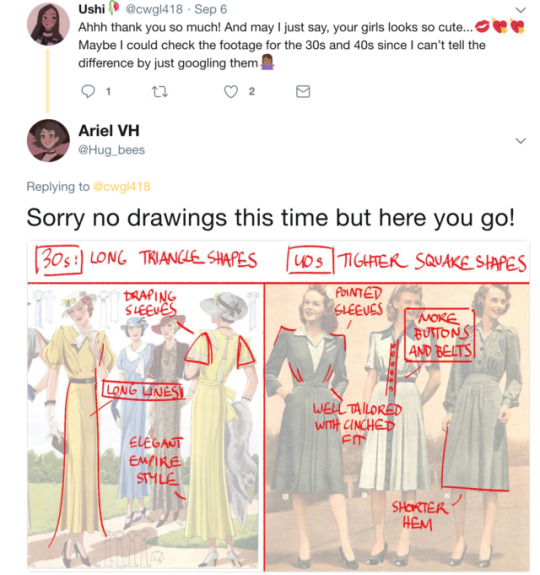
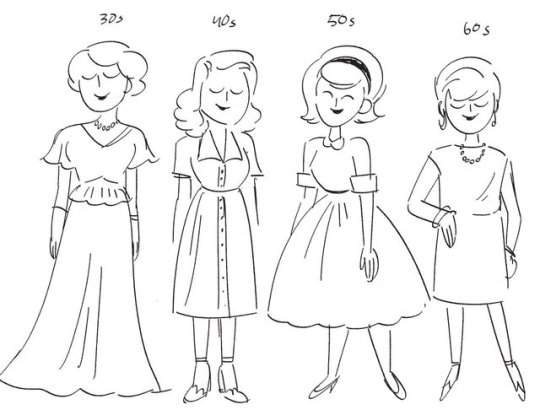
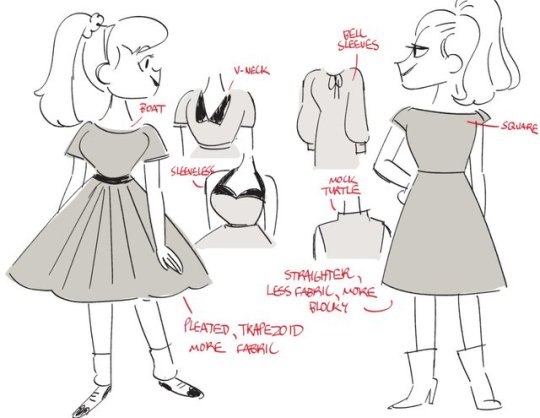

Had an impromptu chat with @ushi418 about fashion history the other day- thought I’d post it here as a quick ref for people!
72K notes
·
View notes
Text
ok but have you ever seen a parked blimp?


why is this so goddamn funny


64K notes
·
View notes
Text

⭕ A cover for chapter 1 of my comic Breaking the Boundary! ⭕
You can read it on tapas or AO3
When I was drawing the cover art for the entire comic, I kept thinking about what new readers will think if they see it, how do I represent BtB's essence. With this art I just wanted to draw the things I love: which are Ryan Freitas and epicness
55 notes
·
View notes
Text
Writing existing character voices for fanfic
Hey, so, I started doing a writeup a week ago about how to get character voices in your fanfic to sound “in character,” in response to a comment from a new writer I was beta-ing for.
I’ve been told this is a thing I do well.
As someone who studied dialogue extensively for a theatre degree, I tend to do this reflexively now, and I don’t write out each individual step. But I put some thought into how I might break down the process if I was new at it and looking to get better.
I don’t think it’s actually that different than an actor studying character accents, except as a writer you’re breaking down meaning rather than sound.
Let’s take a look at what makes dialogue unique to a character. I’m gonna list these as bullet points first, and then I’ll suggest some exercises to explore these aspects of speech.
Most important aspects - focus on these first
Vocabulary - the words they use. As subset of this:
Complexity of words, which can include:
Syllable length
Likelihood to be used in casual conversation - a character can be very smart and still use very informal language.
Cultural touchpoints
Culture can include pop culture references - think Tony Stark’s nicknames for everyone, i.e. “Point Break” and “Underoos”
How in or out of sync the character is with the story’s setting with regard to both time and place - are they from a different country or era of time than their peers?
Important - Check these out if you have time
How likely the character is to speak their mind vs. change the subject - this could be for any number of reasons, from fear to duplicity
Amount they say / Introvertedness / how reticent they are - This is somewhat related to the above point, but not necessarily, and should be researched from different angles. Subverting a topic is not the same thing as being afraid to talk about it.
Different ways of speaking with different characters - this could be a function of story (i.e. how a character who is captured speaks to their captors as opposed to friends) as well as pure Code Switching
Deep cuts - Advanced aspects of speech
Fluency in the language they are speaking
Accents - You do not have to write a character in an accent, i.e. spell the words differently to show the accent, if you don’t want to. It really depends on the piece (usually how light hearted or humorous you want it to be) whether you do or not.
Okay, this is all well and good, you say. But HOW do I incorporate this into my writing?
Dialogue analysis exercise
Find five (or more, but at least five) representative lines from your character’s canon dialogue.
If they don’t speak, don’t have five lines, do the best you can. (I imagine other forms of communications can probably also be analyzed in this way, but I’m gonna focus on dialogue for now.)
These are going to be your key phrases. They need to be from canon and they need to be words that really show off who your character is.
Say the words out loud. Read them again and again. What do they sound / feel like?
What is the average syllable length? How many long words do they use?
Do any words jump out at you as archaic? What about modern pop culture references?
What is a different way they could have said this? Write some alternate versions of this phrase and figure out WHY the character didn’t say it this way instead. What is the difference between the canon dialogue and the alternative? Try to be as specific as possible. It’s as important to know what they wouldn’t say as what they would.
Look up any of the more complex words and find some similar ones, with a similar level of complexity. Use a thesaurus you trust and possibly also Wordnik. If your character doesn’t use ANY complex words, reflect on that. Why? What’s their reason? How does that fit with the rest of their personality?
Think of some other characters from other pop culture pieces who speak in a similar way. It doesn’t have to be 100% the same, but if it can help your ear get used to some new-but-different phrases, it’s enough. You’re training your brain to speak like the character. Start to sort phrases they would say from ones they wouldn’t. How do these two characters differ?
Now that you have worked thoroughly through your key phrases, start to imagine these lines said in something other than the original context. What if they were said to a different character? WOULD they even be said? What would change? What would happen if your character was scared / hurt / overjoyed / sick?
Finally, after all that, write some NEW dialogue for your character, either as practice, or right into your fic draft. Keep using your key phrases as a guide and go back to canon as much as you need to! You can do this!
After all of this, you should feel significantly more confident in writing that existing character into your story. Huzzah!
If you found this at all helpful, reblog and / or leave me a note. I’m curious to hear what you think.
4K notes
·
View notes
Text
On Creating Characters- Six Points to Get You Started
As much as I like to complain about my weaknesses when it comes to writing, I’m happy to say that creating characters isn’t one of them. So for anyone who wants it- my quick guide on creating characters.
This list is for anyone who has a vague idea for a character but doesn’t have a plot or a role in the story for them to fill. It’s for people who have a plot in mind, but lack characters to place in it. It’s for people who love those long, detailed character spreadsheets, but don’t have the patience (or know all the answers) to fill them out. The points I’ve listed below will probably overlap heavily and influence one another- for instance, “societal/cultural influences“ may inform both “philosophy“ and “defining relationships“. It pulls the character together.
Keep in mind that this is not everything you want to know about your character- you should continue to flesh them out as you write them. This is just a baseline, a starting point, an I-just-want-to-write-something-with-this-character-but-I-know-absolutely-nothing-about-them list so you can jump into writing with or without a plot in mind. It describes them as they are on a typical, ordinary day. As you continue to write and develop them, they will become more nuanced and take on a life of their own.

Base Personality
Jot down some base personality traits. Don’t worry about getting an equal number of positive and negative traits down- or even which is which. Just feel out the character’s base personality.
Significant Historical Events
What events have had the greatest impact on your character (that you know of so far)? Again, don’t worry about getting everything- you can always add more here as they come to you later. Hit the major turning points in your character’s life.
Societal/Cultural Influences
What societal and cultural backgrounds do your characters have? Are they living/working/existing in an area where these influences are the majority or the minority?
Philosophy
What is your character’s default philosophy when it comes to right and wrong, or difficult moral choices? (I usually use the D&D alignment system for its simplicity- feel free to be as detailed or not as you wish).
Defining Relationships
What are this character’s defining relationships? Enemies, friends, and family are good places to highlight. Major conflicts and points of contention are great starting points for plots.
Goals
What does your character want more than anything? What are you preventing them from getting over the course of the story? If any minor goals pop up while you’re writing, jot those down too.
10K notes
·
View notes
